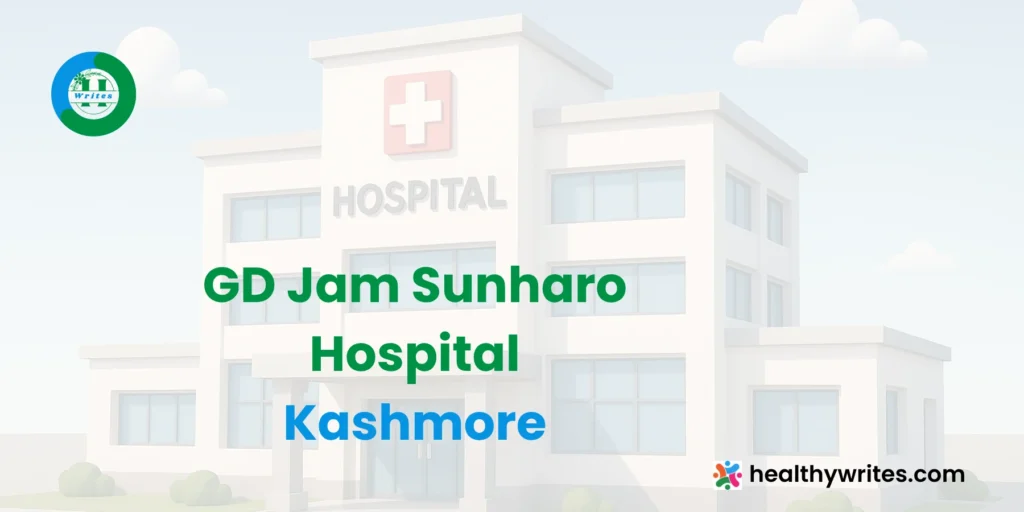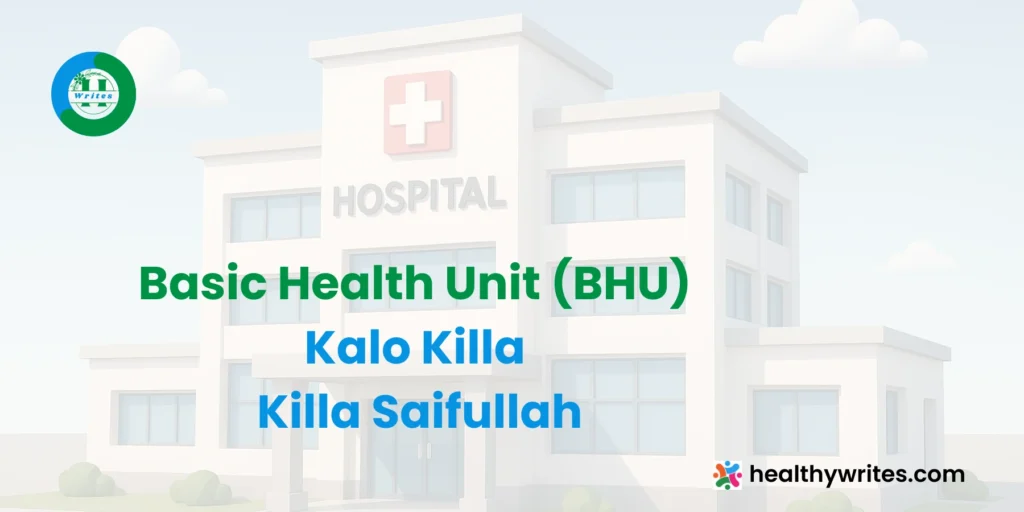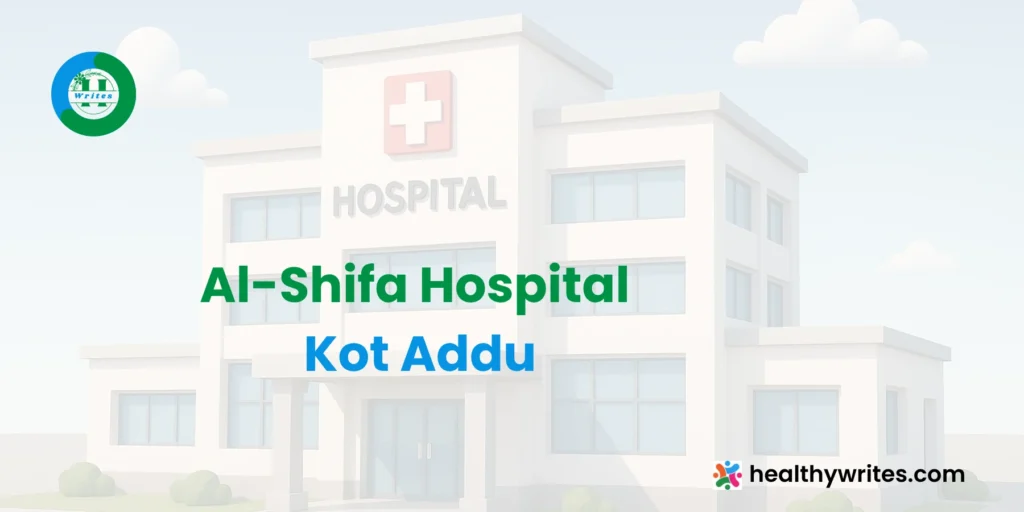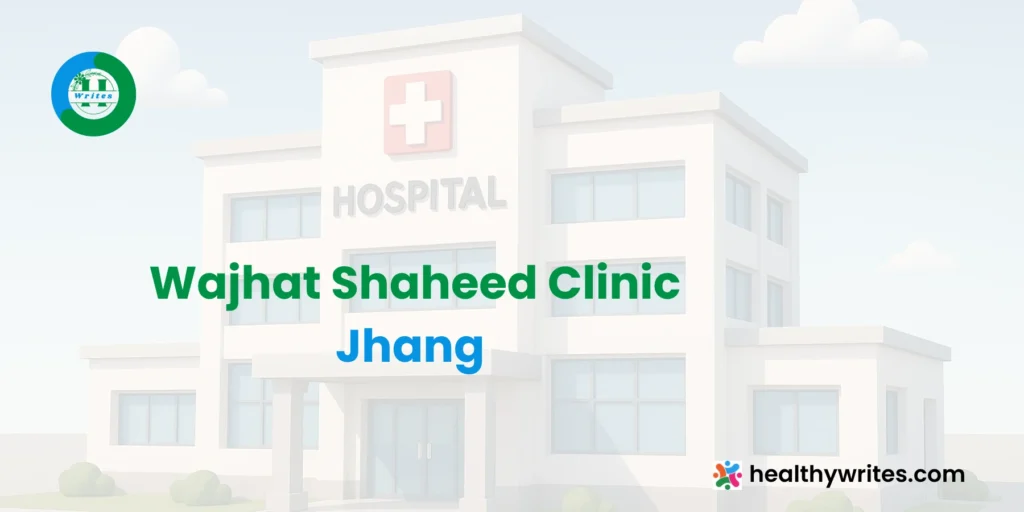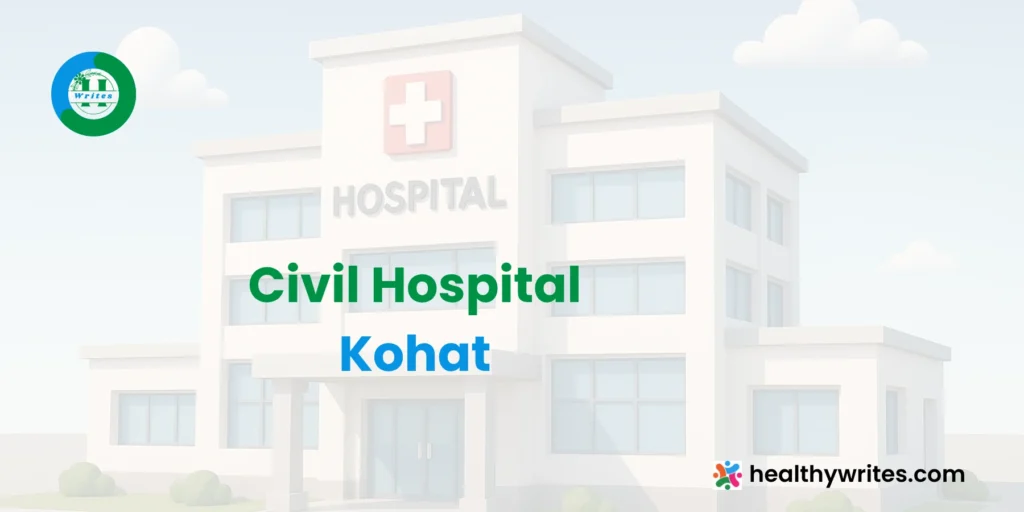GD Jam Sunharo Hospital is a district-level healthcare facility serving Jam Sunharo town and surrounding areas of Kashmore district. As a local public hospital, it provides essential medical, surgical, maternal and child health, and emergency services to rural and urban communities. This article offers a practical, patient-focused overview to help visitors understand services, access, and common procedures.
At a Glance
Type: Government / District Hospital
Emergency: 24/7 urgent care and stabilization
Main Services: Emergency, OPD, Inpatient Wards, Surgery, Maternity, Paediatrics, Diagnostics, Pharmacy
Core Departments & Services
- Emergency & Trauma: Immediate triage, resuscitation, wound care, initial management of trauma, and stabilization prior to referral if needed.
- Outpatient Department (OPD): Daily clinics for general medicine, surgery, gynaecology, paediatrics, and other rotating specialties.
- Inpatient Wards: Separate male, female, and paediatric wards with nursing care and routine doctor rounds.
- Surgical Services: Operating theatre(s) for emergency and selective surgical procedures (appendicectomy, wound debridement, hernia repair, basic obstetric surgeries).
- Maternity & Obstetrics: Antenatal clinics, normal deliveries, management of obstetric emergencies, and postpartum care.
- Paediatrics & Neonatal Care: Child health consultations, basic newborn care, immunization support, and management of common paediatric illnesses.
- Diagnostics: Basic laboratory tests (CBC, urine, malaria/dengue screening, glucose, renal/liver profiles as capacity allows), X-ray and ultrasound services subject to equipment availability.
- Pharmacy: Dispensing of essential medicines and basic consumables; patients may be directed to external pharmacies for unavailable items.
- Referral & Transfer: Coordination for transfer to higher-level hospitals for advanced care (e.g., tertiary centres in Jacobabad, Sukkur) with ambulance support where available.
- Preventive Health & Outreach: Immunization days, maternal health programs, and health education for the local community.
Patient Journey: Step-by-Step
- Arrival & Triage: Use the Emergency entrance for urgent cases; non-urgent patients proceed to OPD registration.
- Registration: Provide basic details (name, age, address, CNIC/B-Form if available) and get an OPD slip or token.
- Waiting & Consultation: Wait for your token; the doctor will examine, advise tests, prescribe medicines, or recommend admission.
- Investigations: Submit test requests to lab/radiology counters and return with results to the clinician.
- Admission: If admitted, follow ward procedures, comply with nursing care, and keep personal items limited.
- Discharge & Follow-up: Collect discharge summary and prescriptions; return for follow-up as advised.
Typical Timings (Indicative)
- Emergency: 24 hours every day.
- OPD Clinics: Usually run on weekdays during morning hours; specific specialist days may vary.
- Lab & Imaging: Generally open during OPD hours; emergency testing is supported after hours on a limited basis.
- Visiting Hours: Determined by ward staff — typically a short window once or twice daily to ensure patient rest and infection control.
Facilities & Infrastructure
- Emergency room with basic resuscitation equipment
- Operating theatre(s) for emergency and planned surgeries
- Maternal delivery suite and postnatal observation
- Basic diagnostic laboratory and imaging (X-ray, ultrasound)
- Pharmacy for essential drugs
- Ambulance/transport coordination for referrals
- Nursing stations, dressing room, and injection room
Fees & Costs
As a government facility, many services are subsidized or free. Nominal charges may apply for specific tests, procedures, or consumables. Emergency stabilization is prioritized regardless of immediate payment; billing and formalities can follow once the patient is stable.
What to Bring
- CNIC / B-Form or guardian’s ID for registration
- Previous medical records, test reports, and current prescriptions if available
- List of current medications and any allergies
- Small change/cash for incidental expenses or items not available in hospital pharmacy
- Essential personal items for admitted patients (slippers, toiletries, mobile charger)
Quality & Safety Measures
- Triage system in emergency to prioritise critical patients
- Basic infection prevention practices (hand hygiene, cleaning of clinical areas)
- Referral pathways to higher centres for advanced care
- Trained nursing staff and on-call medical officers for continuous patient monitoring
Tips for Visitors & Patients
- Arrive early for OPD to secure a token and reduce waiting time.
- Keep documents and previous reports handy to speed up diagnosis.
- Designate one family member to liaise with staff to avoid congestion.
- Ask for written discharge summaries and medicine lists before leaving the hospital.
Frequently Asked Questions (FAQs)
Is the emergency department open all the time?
Yes. The emergency unit operates 24 hours a day for urgent medical and trauma cases.
How do I get registered for OPD?
Go to the registration counter, provide basic details and any ID, collect your slip/token, and wait for your turn in the relevant clinic.
Are specialist doctors available?
Specialist availability depends on duty rosters and visiting schedules. General physicians and on-call medical officers are present round the clock.
Does the hospital perform surgeries?
Yes — emergency and selected elective surgeries are carried out based on surgeon availability and theatre scheduling.
Can I obtain medicines from the hospital pharmacy?
Essential medicines are dispensed by the hospital pharmacy subject to stock. If a medication is unavailable, you may be advised to purchase it from an outside pharmacy.
Is there an ambulance service for referrals?
Ambulance and transfer coordination are arranged when needed; availability and any charges depend on hospital resources.
What documents are needed for admission?
Bring CNIC/B-Form, any previous medical records, and a local contact number. For minors, guardian identification is required.
Are vaccinations available at the hospital?
The hospital supports routine immunization programs and community vaccination drives as scheduled.
How are serious cases managed?
Serious cases are stabilised in emergency or ICU (if available) and referred to higher-level tertiary hospitals when advanced care is required.
How can I provide feedback or lodge a complaint?
Speak to the duty medical officer or the hospital administration office. Many government hospitals maintain a suggestions/complaints register at the main reception.
Disclaimer
This overview is intended to provide general guidance about GD Jam Sunharo Hospital, Kashmore. On-ground service availability, timings, and facilities may change due to staffing, equipment maintenance, or administrative directives. For the latest details, please contact the hospital directly on arrival.
